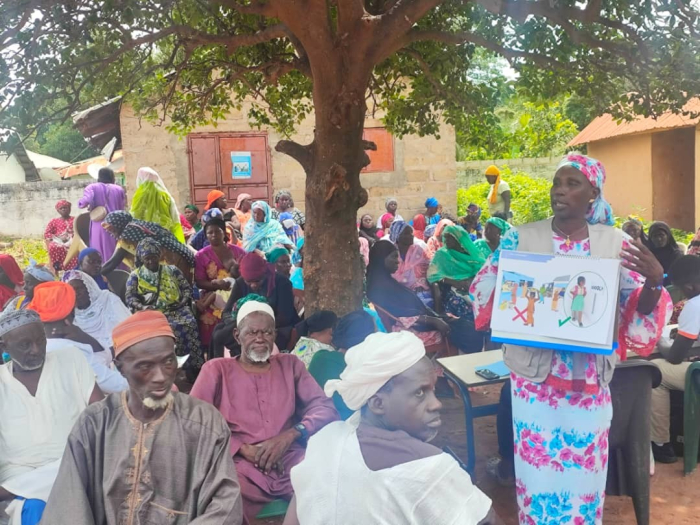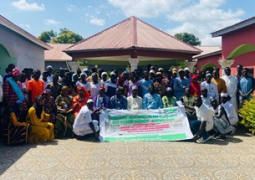
Fatou Drammeh made this call on Monday 15th September in an interview with journalists during a cash transfer program held at Kalagi village, Foni Jarol.
Her call came amid surge in child exploitation in some urban and provincial towns in the country.
The Nafa cash transfer program is conducted through Social and Behavioral Change Communication (SBCC) activities which is divided into modules, including early child development and child labor.
Under the Resilience, Inclusion, Skills and Equity (RISE), the project is being jointly implemented by the National Nutrition Agency (NaNA), the Department of Community Development (DCD) and the Directorate of Social Welfare (DSW) with funding from World Bank and The Gambia government.
A sub-component of the RISE project, the Nafa project is being implemented in 20 poorest districts in The Gambia of which 3 districts have already graduated. However, the beneficiaries in the remaining 17 districts continue to receive a bi-monthly cash transfer of D3000 and Social and Behavioral Change Communication (SBCC) activities.
While reflecting on some of the gains made thus far, Drammeh equally appealed to parents and caregivers to ensure that their children are enrolled in schools to gain valuable knowledge and protect them from being exploited through child labour.
“Sometimes, you see children less than 10 years with plates on their heads selling different things. These can be very risky behaviors, because you don’t know who is out there trying to make sure that they derail the child or cause harm to them.” she underscored.
She expressed her resolve to sensitise caregivers to be able to protect their children, especially children that are supposed to be in school.
“So, before beneficiaries receive their moneys, we conduct an onsite SBCC activities on early childhood development and child labor,” she declared.
One of the project development goals of the Gambia RISE, she added, is to ensure foundational learning for children to be able to read and write at an early stage.
Read Other Articles In National News





